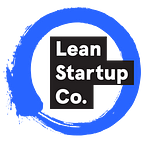Sometimes You Have To Say No: Five Insights on Learning from Customers
Written by Misti Yang, Contributor for Lean Startup Co.
When Chika Uwazie met Eric Ries, she asked, “When are you coming to Africa?” But she didn’t wait for him to arrive to start implementing Lean Startup practices. As the co-founder and CEO of TalentBase, a HR management system designed for small to medium-sized companies in Nigeria, Chika has relied upon customer insights to guide important pivots and fundamental changes in TalentBase’s features and goals.
“People don’t understand that if we look at Nigeria, which is one of the largest African economies, we have very specific needs,” Chika says. Many businesses in Nigeria still rely on manual processes, meaning paper payroll records or cash payments to employees. Developing and selling TalentBase to customers has been about understanding, educating, and learning from a new customer. The experience has taught Chika valuable lessons on creating an effective customer feedback loop for product development.
Know your customers (or be ready to change)
In its early days, TalentBase was a recruiting platform designed to help companies create career pages. “We did that thinking, ‘Oh, we think this is what [companies] need,’ and after speaking to over 200 HR managers we realized, no. They need a system that manages their internal HR processes,” Chika says. So the TalentBase team scrapped the original product. Based on this experience, Chika believes that “zooming in” on what the customer actually wants and will pay for is crucial to designing a viable product, especially in a developing market. The feedback TalentBase received from the 200 managers evolved the product to the internal HR system it is today.
Do one thing well, not 20 things so-so
According to Chika, in Africa it is common for startups to “build a really big product that does 20 different things.” Although she describes this instinct as an “African thing,” it is easy for startup teams everywhere to be ambitious in trying to solve every pain that a customer mentions. The fear of losing a customer can overwhelm decision making based on meaningful data.
Chika says that despite her Lean instincts, once TalentBase became an internal HR platform, the team couldn’t resist piling on the features. “It became overwhelming,” Chika recalls. Despite all the bells and whistles, “most clients were only using three or four key features.” Once again, TalentBase took the lead from customers and focused on building a simple HR tool focused primarily on payroll.
Get customer feedback in person
Chika’s top advice for gathering input is to visit your customers and watch how they interact with your product. This real-time information gathering can provide better insights into what clients like and don’t like. “We have gotten the best feedback when we actually physically went to the client and said, ‘What are the issues?’” Chika says, noting that alternative methods often fall short. For example, surveys do not reach everybody, and they typically provide less details than face-to-face meetings.
Enlist every team in learning
Building and learning from a customer feedback loop should not be the responsibility of one person or team. Chika recommends that you “build a system that informs every part of your company.” Each TalentBase team — development, sales, and customer success — offers a different perspective on its users. For example, Chika says, “We ask our sales team to document what they are hearing about what customers expect,” whereas the customer success team works with existing users and knows what problems are being encountered in real time.
Learn how to say no
Even though customer feedback is key to the build-measure-learn cycle, a product is unlikely to solve every problem for every user. Chika has learned that she has to be able to say no in order to prevent TalentBase from becoming a complete kludge. “Even today I had to push back on a client because they were like, ‘Oh we want this thing,’” she recounts, “and I can’t build things because of one client. It has to always be from the collective feedback of everybody.” She suggests asking, “Does everyone care about that?” before you build it.
Developing a groundbreaking product in Nigeria forced Chika and the team at TalentBase to adapt quickly. When thinking back over everything she has learned from Lean Startup methodologies, Chika says she wants to use her TalentBase experience as “a case study in how we went too far down the rabbit hole building some things but were able to use [that time] as a strength and pivot to where we are today.” It’s a perfect story of how building, measuring, and learning can create lasting success even if there are a few setbacks along the way.
If you enjoyed reading this, click on the heart button so others can find this post.
